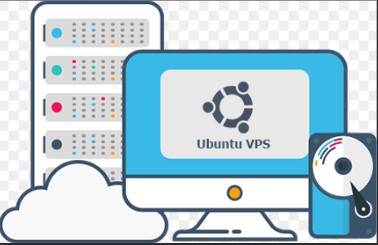Buy Vps Online
In today’s digital landscape, Virtual Private Server (VPS) hosting has emerged as a cornerstone of web infrastructure, offering unparalleled flexibility, control, and performance.
Understanding the intricacies of VPS hosting and its advantages over traditional hosting solutions is crucial for businesses and individuals alike.
What is VPS Hosting and Why You Need It
VPS hosting involves partitioning a physical server into multiple virtual servers, each operating independently with its own resources and operating system. This setup provides users with a dedicated environment for their websites or applications, offering greater stability, security, and customization options compared to shared hosting.
The Rise of Online VPS Purchasing
With the proliferation of e-commerce and cloud computing, the process of purchasing VPS hosting has become increasingly streamlined and accessible.
Online platforms offer a wide range of VPS plans tailored to different needs and budgets, allowing users to compare options and make informed decisions from the comfort of their homes or offices.
Key Benefits of Using VPS Over Other Hosting Solutions
– Scalability: VPS hosting allows for easy scalability, enabling users to upgrade or downgrade their resources as needed to accommodate fluctuations in traffic or growth.
– Performance: With dedicated resources, VPS hosting offers superior performance and reliability compared to shared hosting, resulting in faster load times and better overall user experience.
– Customization: VPS hosting provides users with full root access to their virtual server, allowing for complete customization of software, applications, and server configurations.
– Security: By isolating each virtual server from others on the same physical machine, VPS hosting offers enhanced security and isolation, minimizing the risk of security breaches or data leaks.
Understanding VPS Hosting: The Basics
How VPS Works: Virtualization Explained
VPS hosting relies on virtualization technology to partition a physical server into multiple isolated virtual environments. Each virtual server operates independently, with its own operating system, resources, and software stack, providing users with the benefits of a dedicated server at a fraction of the cost.
Types of VPS: Managed vs. Unmanaged
Managed VPS hosting involves outsourcing server management tasks to a third-party provider, who handles maintenance, updates, and troubleshooting on behalf of the user.
Unmanaged VPS hosting, on the other hand, requires users to take full responsibility for server management, including software installation, configuration, and maintenance.
Key Features of a Quality VPS
A quality VPS hosting service should offer a range of features to meet the diverse needs of users, including:
– High-performance hardware: Ensuring fast processing speeds and minimal downtime.
– Multiple operating system options: Supporting popular operating systems such as Linux and Windows.
– Scalable resources: Allowing users to easily upgrade or downgrade their server resources.
– Robust security measures: Including firewalls, intrusion detection systems, and regular security updates.
Deciding What You Need: Customizing Your VPS
Assessing Your Requirements: Storage, Bandwidth, and RAM
Before purchasing a VPS hosting plan, it’s essential to assess your requirements in terms of storage, bandwidth, and RAM. Consider factors such as the size and complexity of your website or application, expected traffic levels, and future growth projections.
Operating Systems: Linux vs. Windows
VPS hosting providers typically offer a choice of operating systems, with Linux and Windows being the most common options. Linux is favored for its stability, security, and open-source nature, while Windows offers compatibility with Microsoft technologies such as ASP.NET and MSSQL.
Choosing the Right Control Panel: cPanel, Plesk, and Alternatives
A control panel simplifies server management tasks such as creating email accounts, managing domains, and installing software. Popular control panel options include cPanel, known for its user-friendly interface and comprehensive features, and Plesk, which offers robust security and automation capabilities.
Scalability: Ensuring Future Growth
When selecting a VPS hosting plan, consider your future scalability needs. Choose a provider that offers flexible scalability options, allowing you to easily upgrade or downgrade your server resources as your business grows or evolves.
Finding the Right VPS Provider
Evaluating Provider Reputation: Reviews and Ratings
Researching provider reputation is essential when choosing a VPS hosting provider. Look for reviews and ratings from reputable sources, paying attention to factors such as uptime, performance, customer support, and overall user satisfaction.
Comparing Pricing Plans: What to Look For
While price is an important consideration, it should not be the sole determining factor when choosing a VPS hosting plan. Compare pricing plans based on factors such as server specifications, features, scalability options, and level of support offered.
Understanding Service Level Agreements (SLAs)
A Service Level Agreement (SLA) outlines the terms and conditions of the VPS hosting service, including uptime guarantees, support response times, and compensation policies in the event of service disruptions. Review the SLA carefully to ensure it meets your business needs and expectations.
The Importance of Customer Support: 24/7 Availability and Expertise
Reliable customer support is crucial when selecting a VPS hosting provider. Look for providers that offer 24/7 availability and responsive support via multiple channels such as phone, email, and live chat. Experienced technical support staff can help troubleshoot issues and provide assistance when needed.
Securing Your VPS: Essential Considerations
Implementing Strong Security Protocols
Security is paramount in VPS hosting, given the potential risks associated with hosting multiple virtual servers on the same physical machine. Implement strong security protocols, including firewalls, intrusion detection systems, and regular security audits, to protect against cyber threats and unauthorized access.
Regular Backups: Protecting Your Data
Regular data backups are essential for protecting your VPS data against loss or corruption. Choose a VPS hosting provider that offers automated backup solutions with regular backup intervals and easy data restoration options.
Using Firewalls and Antivirus Software
Firewalls and antivirus software play a critical role in VPS security, helping to prevent unauthorized access and detect and remove malware or other malicious threats. Configure firewalls to restrict incoming and outgoing traffic, and regularly update antivirus software to ensure it can detect the latest threats.
Monitoring and Maintenance: Keeping Your VPS Secure
Regular monitoring and maintenance are key to keeping your VPS secure and performing optimally. Monitor server logs, performance metrics, and security alerts for signs of potential issues, and perform routine maintenance tasks such as software updates, security patches, and system optimizations.
The Purchase Process: Steps to Buying VPS Online
Setting Your Budget: What to Expect
Before purchasing VPS hosting, establish a budget based on your business requirements and financial constraints. Keep in mind that VPS hosting prices can vary widely depending on factors such as server specifications, features, and level of support offered.
Selecting a Plan: Matching Your Needs
Once you’ve established your budget, carefully review and compare VPS hosting plans from different providers. Consider factors such as server specifications, features, scalability options, and level of support offered, and choose a plan that best matches your needs and requirements.
Completing the Purchase: Tips for a Smooth Transaction
Once you’ve selected a VPS hosting plan, the next step is to complete the purchase process. Follow the provider’s instructions for signing up and providing payment information, and ensure that all necessary details are accurately entered to avoid any delays or complications
in the process. Be sure to review the terms of service and any applicable agreements before finalizing your purchase to ensure you fully understand the terms and conditions.
Setting Up Your VPS: Initial Configuration and Setup
Once your purchase is complete, you’ll need to set up your VPS to get it up and running. This typically involves configuring your server settings, installing your chosen operating system, and setting up any additional software or applications you may need. Many VPS hosting providers offer easy-to-follow setup guides or tutorials to help you through this process.
Maximizing Your VPS Experience
Optimizing Performance: Best Practices
To get the most out of your VPS, it’s essential to optimize its performance. This can include optimizing your website or application code, configuring server settings for maximum efficiency, and implementing caching mechanisms to reduce load times and improve responsiveness.
Installing Necessary Software and Applications
Depending on your needs, you may need to install additional software or applications on your VPS. This could include web servers, databases, content management systems, or other tools to support your website or application.
Most VPS hosting providers offer a wide range of pre-configured software options to choose from, making it easy to get started.
Regular Maintenance: Keeping Your VPS Running Smoothly
Once your VPS is up and running, it’s important to perform regular maintenance to keep it running smoothly. This can include tasks such as installing software updates and security patches, monitoring server performance and resource usage, and optimizing configurations for better efficiency.
Troubleshooting Common Issues
Despite your best efforts, you may encounter occasional issues or challenges with your VPS. Common issues could include performance bottlenecks, software conflicts, or security vulnerabilities. Knowing how to troubleshoot these issues effectively can help minimize downtime and keep your VPS running smoothly.
Conclusion: Making the Most of Your VPS
In conclusion, VPS hosting offers a powerful and flexible solution for businesses and individuals looking to host websites or applications online.
By understanding the basics of VPS hosting, choosing the right provider and plan, and implementing best practices for security and performance, you can maximize the benefits of your VPS and ensure a seamless hosting experience.
Call to Action: Get Started with Your VPS Today
Ready to take your online presence to the next level? Contact our team of experts today for personalized advice and guidance on choosing the right VPS hosting solution for your needs.
Explore our exclusive VPS hosting plans and join our community for the latest tips and updates in VPS hosting. Let us help you get started on your VPS journey and unlock the full potential of your online presence.


